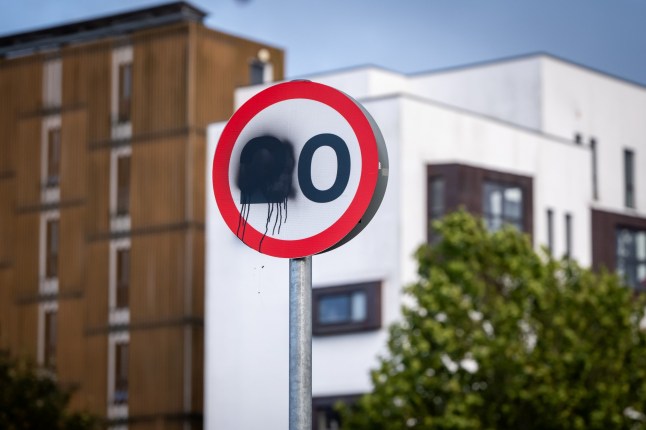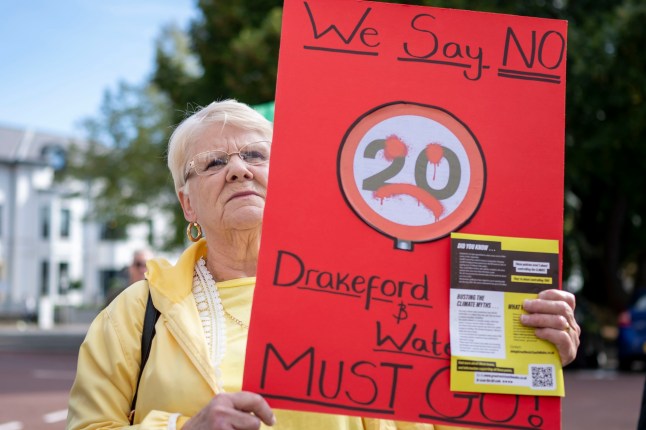Safety charity wants to cut speed limits to 10mph on thousands of miles of roads


Speed limits should be lowered to 10mph on several town and city roads to cut the number of deaths and injuries, says a leading charity.
The Road Safety Foundation has proposed the limit should be applied around all schools, hospitals and sporting, social and cultural venues.
These areas have a high prevalence of pedestrians, cyclists and motorcyclists who could be seriously hurt or killed if struck at a higher speed, they said.
Critics however have called the recommendation ‘so ridiculous it is simply laughable’.
The charity also suggested country roads and single carriageways should have a limit of 20mph.
The plans would help reach ‘vision zero’, the long-term aim of no deaths or or serious injuries on our roads and are ‘evidence-based given the laws of physics and the fragility of the human body’, the RSA wrote in its Determining Safe Speeds report.
The charity said ‘the moral position that no death or serious injury should be considered an acceptable by-product of mobility’ was behind the proposals.
Speaking to The Times, executive director of the RSF Dr Suzy Charman said: ‘We have a clear idea of the speeds [that] would be required to prevent most road deaths and serious injuries on Britain’s roads.

‘We are not saying that all speeds or speed limits should be set to these speeds, rather that infrastructure needs to be improved or speeds reduced to ensure travelled speeds are better aligned with human tolerances to crash forces.’
Hugh Bladon from the Alliance of British Driver described the suggested limits were ‘laughable’ and said the RSF ‘is clearly not fit for purpose’.
‘If you ban all motorised transport you might reduce deaths and injury a bit, but we should remember that more people were being killed and injured, in the days before motorised transport, by horses and their carriages.
‘It might be better to ban people from walking or cycling where there is any form of motorised transport,’ he said.
The report suggested 30mph limits were okay on roads not regularly used by cyclists or pedestrians.
Faster speeds, meanwhile, were acceptable when a road has ‘fully segregated facilities for any pedestrians or bicyclists’ and those with no T-junctions or crossroads.
‘On these roads (i.e. some dual carriageways including motorways), the priority is to provide adequate roadside infrastructure measures to ensure that road users are suitably protected if they run off the road at current operating speeds.’
In 2023 Wales became the first country in the UK to reduce maximum speed limits in residential areas to 20mph.
Restricted roads, many by homes and schools, saw the speed limit drop from 30mph to 20mph.
The changes were met with protests from motorists.
Get in touch with our news team by emailing us at webnews@metro.co.uk.
For more stories like this, check our news page.



